Written by Iman Attari, doctoral student at the Kelley School of Business
On October 14, 2023, the W. P. Carey School of Business at Arizona State University and the Kelley School of Business at Indiana University collaborated to host the 2nd Annual Symposium on Environmental and Social Sustainability in Supply Chains. Following the success of the inaugural event in 2022, this year’s symposium brought together academic scholars and industry professionals who discussed pioneering advancements, shared insights, and underscored the need for collaborative efforts to address sustainability challenges across the globe.
Prof. Goke Oke kicked off the day by shedding light on the sustainability challenges Africa faces, such as deforestation, water scarcity, and plastic pollution, among many others. Dr. Oke’s emphasis on innovative projects like ASU’s Center for Applied Research and Innovation in Supply Chain-Africa (CARISCA), which empowers African scholars and industry stakeholders, underscored the importance of proactive and synergistic efforts in the face of sustainability challenges.
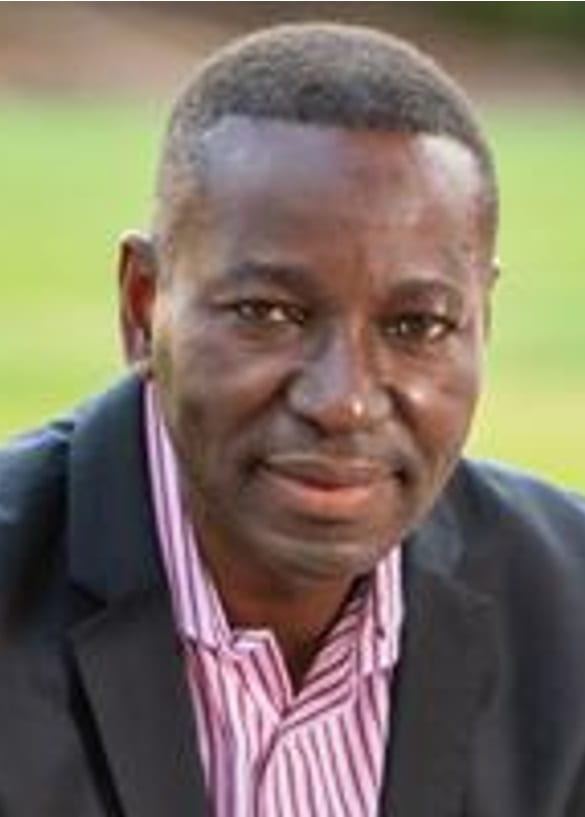
Adegoke (Goke) Oke, W.P. Carey School of Business, Arizona State University
Following this, Professors Burak Kazaz and Jamal El Baz talked about what the West could glean from African supply chain operations. Dr. El Baz elaborated on Africa’s multifaceted landscape, spanning over 54 countries, each with unique strengths and challenges. They jointly stressed the need for a more inclusive representation of African scholars and the potential of imbibing new research paradigms from Africa into global research narratives.
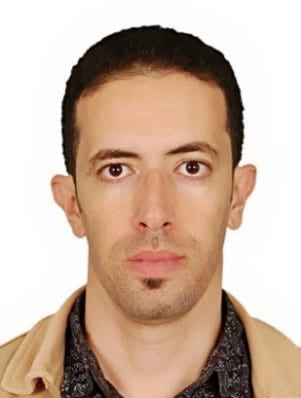
Jamal El Baz, Ibn Zohr University, Morocco

Burak Kazaz, Whitman School of Management, Syracuse University
Sherri Barry from FABRIC Incubator took attendees on a journey through the fashion world. As a co-founder of FABRIC, she proposed an eco-fashion park aimed at fostering a circular manufacturing ecosystem to combat the fashion industry’s notorious waste problem.
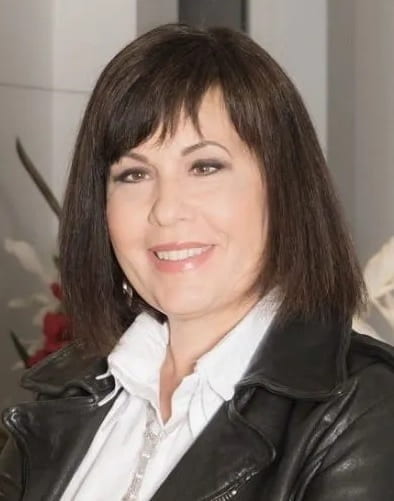
Sherri Barry, FABRIC Incubator
Next, Karen Shanafelt from the Arizona Department of Environmental Quality delved into the challenges of environmental sustainability for drinking water in Arizona. The impending regulations on PFAS chemicals, she noted, would demand innovative solutions, one of which could be the consolidation of smaller water systems into larger, more manageable entities.

Karen Shanafelt, Arizona Department of Environmental Quality
Prof. Kevin Dooley took the stage next, emphasizing that sustainability is no longer a niche, but a universal professional mandate. Dr. Dooley advocated for a more pragmatic approach in academia, urging research driven by real-world pain points and promoting active collaborations to drive tangible impact.

Kevin Dooley, W.P. Carey School of Business, Arizona State University
As the day progressed, Prof. Benjamin Lyle Ruddell introduced the FEWSION Supply Chain Data Science Project, an initiative providing a holistic view of food, energy, and water supply chains. The project, he elaborated, aims to equip communities with actionable data to enhance sustainability and resilience.
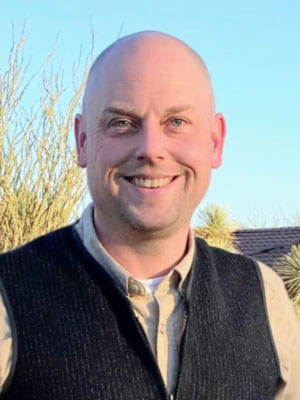
Benjamin Ruddell, School of Informatics Computing and Cyber Systems, Northern Arizona University
Next, Prof. Erica Plambeck shed light on the complexities of the electric vehicle landscape in Bangladesh, particularly emphasizing the toxic circular economy driven by lead-acid battery-powered vehicles. Dr. Plambeck then put forth a series of innovative business strategies and practical interventions to address and mitigate these significant environmental threats.
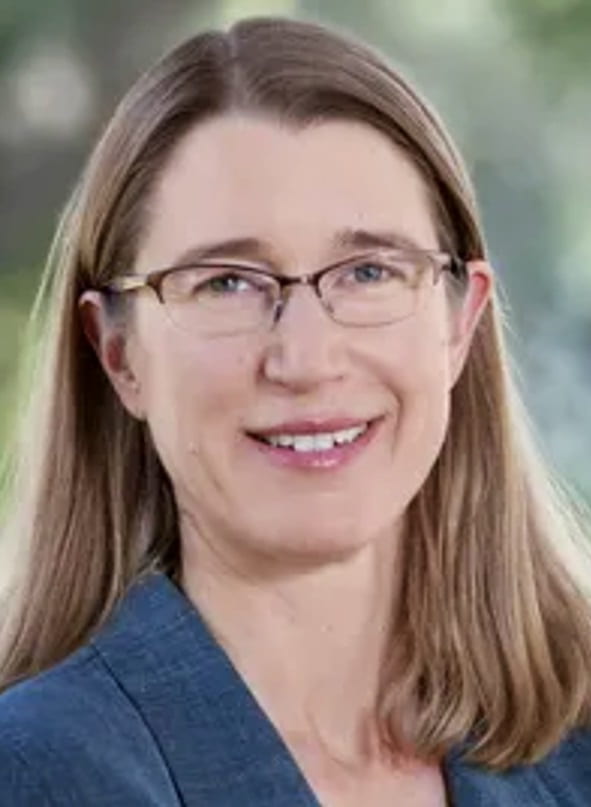
Erica Plambeck, Stanford Graduate School of Business
Prof. Kamalini Ramdas wrapped up the presentations by sharing her on-ground experiences of running field experiments in emerging markets, outlining the rewards and hurdles encountered in the journey from ideas to implementation.
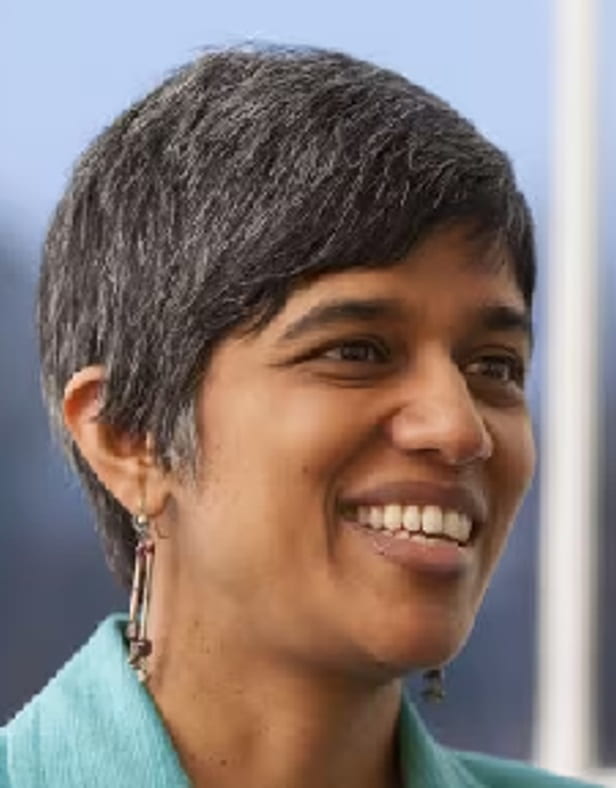
Kamalini Ramdas, London Business School
Amidst the individual presentations, the symposium also featured two discussion panels. The first panel, moderated by Kevin Dooley, featured Brigette Banser of Amazon, Sherri Barry, Benjamin Ruddell, and Karen Shanafelt. These experts delved deeper into the real-world challenges industries grapple with in addressing sustainability issues by sharing their invaluable experiences and answering questions from the audience.
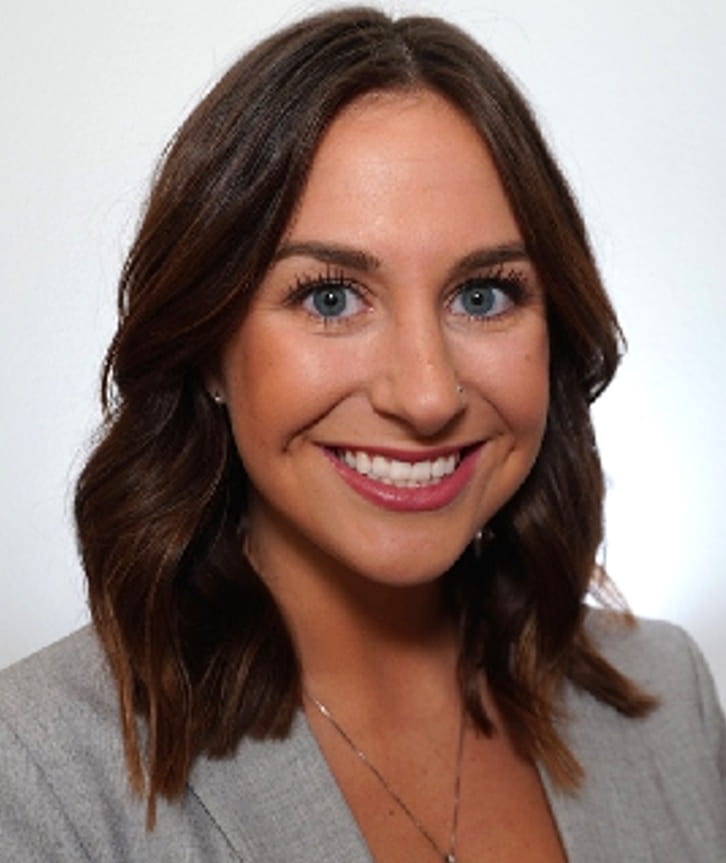
Brigette Banser, Amazon
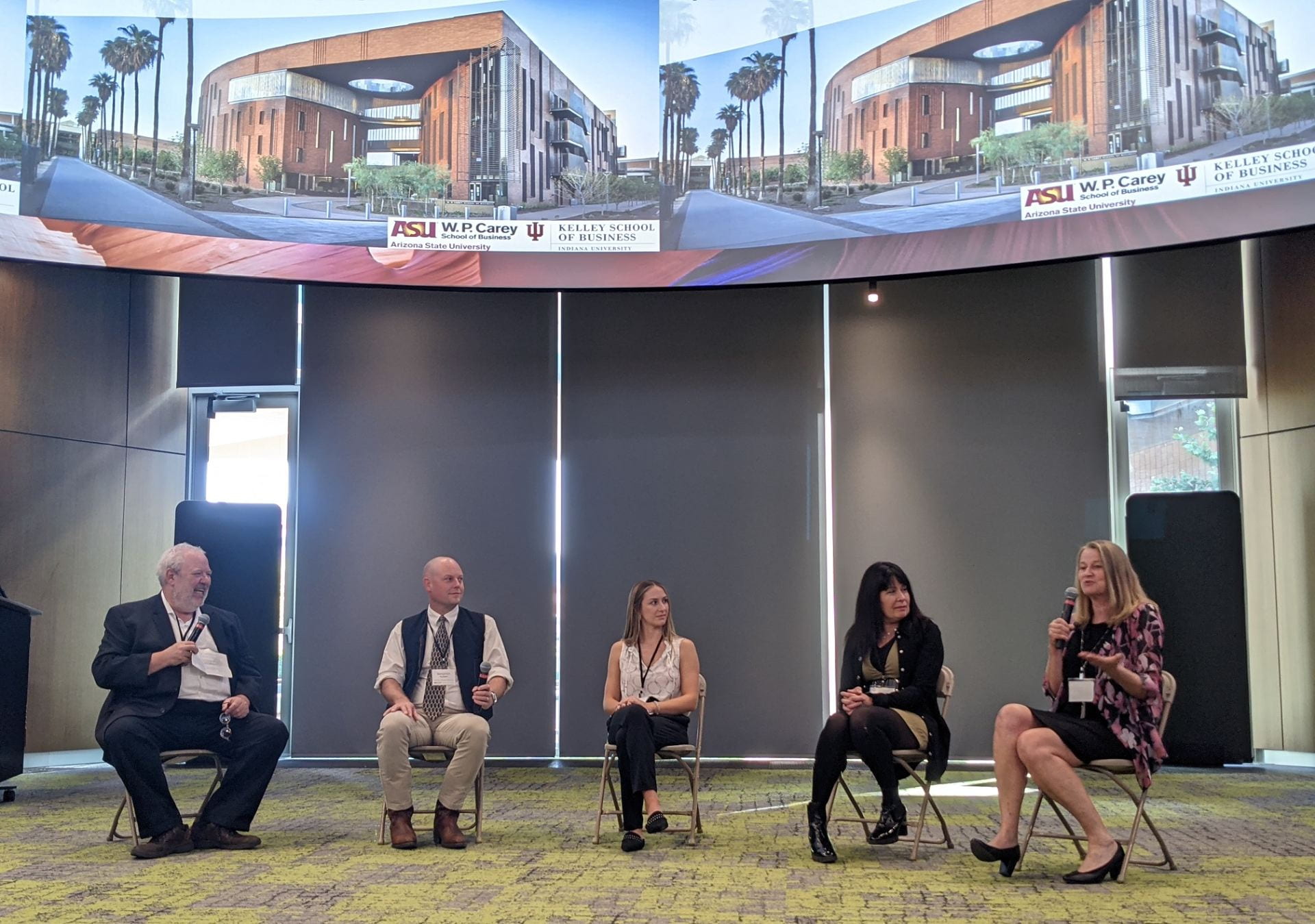
The second panel, moderated by Owen Wu, featured Kevin Dooley, Burak Kazaz, Erica Plambeck, and Kamalini Ramdas. These academic scholars answered pre-submitted questions and engaged in live dialogues with the audience on the research problem identification, implementation, and collaboration with practitioners.
This symposium not only served as a platform for knowledge sharing but also ignited a collaborative spirit among academia and industry, fostering a shared vision toward a sustainable and resilient supply chain ecosystem. The insights garnered from this event emphasized the need for cross-disciplinary collaborations, novel paradigms, and a keen understanding of global challenges in ensuring a sustainable future for all.
Special thanks to the symposium co-chairs: Kevin Dooley (ASU), Owen Wu (IU), and Rui Yin (ASU).
Leave a Reply